fema
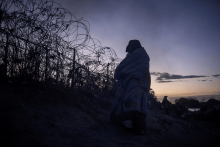
On March 11, the Department of Homeland Security sent the Episcopal Diocese of the Rio Grande a letter insinuating illegal activities at a diocesan shelter, including human trafficking.
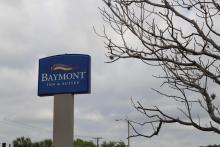
At least 60 percent of Puerto Ricans receiving TSA assistance in the United States don’t plan to return to the island when funding expires, a FEMA representative said, although that could change in the future as the island rebuilds.

In Washington, many lawmakers have criticized FEMA as having too lenient standards for determining whether Puerto Ricans’ homes damaged by the hurricane are livable. Sen. Elizabeth Warren (D-Mass.) said one home FEMA defined as “hospitable” doesn’t have a secure roof, doors, or windows, and may not have access to power or clean water.
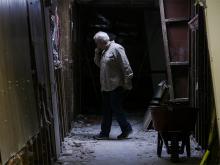
After lawsuits and a Supreme Court decision, the Federal Emergency Management Agency has issued a new policy extending disaster relief to churches, synagogues and other congregations.
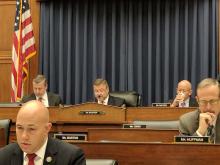
The Disaster Recovery Reform Act, also known as H.R. 4460, was approved on Nov. 30 by the House Transportation and Infrastructure Committee and will next move to the House floor for deliberation.
The bill received strong support from both sides of the aisle despite objections that using taxpayer funds to rebuild houses of worship would violate the separation of church and state. Proponents of the measure argue that religious groups, which are often at the forefront of disaster relief efforts, are being unfairly disadvantaged.
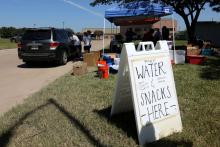
The Texas officials’ letter follows a Sept. 4 lawsuit filed by three churches in the state that were damaged by Hurricane Harvey. They are challenging the current FEMA policy, which “explicitly denies equal access to FEMA disaster relief grants for houses of worship solely because of their religious status,” according to the lawsuit.

The United Methodist Committee on Relief is known for its expertise in “case management.” After the initial cleanup — where the Methodists have work crews helping pull mud out of houses — the church sends trained volunteers into the wreckage to help families navigate the maze of FEMA assistance, state aid programs, and private insurance to help them rebuild their lives. UMCOR also trains other non-profits to send their own case managers into the disaster zone.
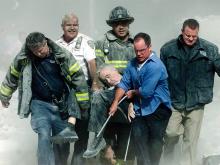
In August 2016, as the 15th anniversary of the 9/11 attacks loomed, religious leaders tuned into a webinar to prepare themselves for a possible future disaster.
“Who was the first official casualty of 9/11?” asked Monsignor Stephen Rossetti, a Catholic priest and psychologist who led the webinar on “Shepherding in Tragic Times.”
“Father Mychal Judge,” he said, answering his own question, and referring to the priest who was fatally injured while ministering amid the chaos of the North Tower lobby.

The House Wednesday overwhelmingly passed a bill to allow places of worship to receive federal aid to repair their buildings damaged during Hurricane Sandy.
The bill, which garnered strong bipartisan support, is also expected to pass the Senate, and would address what its sponsors consider a discriminatory practice that keeps federal disaster money from religious groups.
Currently the Federal Emergency Management Agency excludes religious organizations but assists privately owned nonprofits. If the bill becomes law, it will make houses of worship eligible for relief on the same terms as other nonprofits.
“Today’s debate and vote is about those who are being unfairly left out and left behind,” Christopher Smith, R-N.J., one of the bill’s lead sponsors, told his House colleagues.
“It’s about those who helped feed, comfort, clothe, and shelter tens of thousands of victims now being told they are ineligible for a FEMA grant.”
Charlotte Keys, of Jesus People Against Pollution in Columbia, Mississippi, who was http://www.sojo.net/index.cfm?action=magazine.article&issue=soj0903&arti..." href="http://www.sojo.net/index.cfm?action=magazine.article&issue=soj0903&arti...